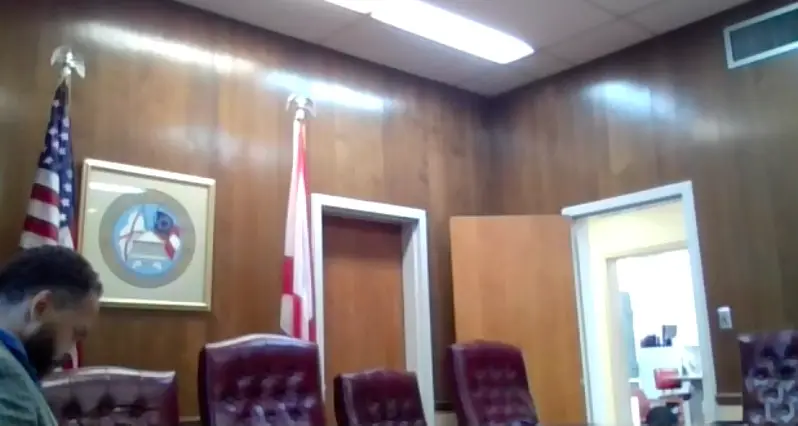
Tensions between members of Marion’s City Council and the Hinton mayoral administration may be what’s behind a series of strange developments at recent city council meetings. The last meeting at which the council actually met, held Monday, March 7, was both unusual and fraught with tension. That night was notable for the council’s failure to approve the minutes of its previous meeting, which had been held Feb. 21.
The approval of the minutes of the previous meeting happens, generally, at the beginning of each meeting of a city council or county commission. To casual observers, it may seem an insignificant part of the meeting. It usually is.
The council’s refusal to follow through with such a routine procedure, though, is significant. Such votes are so routine that the Herald has never before covered a meeting when a voting body outright refused to approve any version of the minutes from the previous meeting.
At that same March 7 meeting, the council adjourned into executive session—shortly after Mayor Dexter Hinton called the meeting to order—to discuss the approval of the evening’s agenda. The approval of the agenda is another action that is normally so routine as to almost go unnoticed.
“We have two different agendas tonight,” said Councilmember Willie Jackson when looking over his papers at the beginning of the meeting. “We need to have time to review the agenda before we vote on it.” Jackson was referring to the fact that the agenda distributed to councilmembers the night before the meeting was different from the one they were being asked to approve that night.
City Clerk Laura Hinton asked the mayor and council to call for a “ten minute recess” to review the agenda. The recess, itself, may have been a violation of Alabama’s open meetings laws.
Those laws require a city council to conduct public business and deliberation in meetings open to the public, except, notably, in the case of discussions involving the good name and character of an individual, or discussions with the city’s attorney regarding a pending legal matter. Neither of these, the two most common legal reasons for a city council to go into executive session, were mentioned in the reasoning the mayor and council used to leave the open meeting.
The council’s second monthly meeting, set for 6:00 p.m. on Monday night, March 21, continued the trend of unusual developments. That evening, Mayor Hinton sat alone at the council table until around 6:15, when Councilmember Jeff Nail arrived.
“I’m going to give it a few more minutes, and then I’m going to call it,” said Hinton. At around 6:20 that night, he announced the meeting would not proceed as scheduled due to lack of a quorum. Alabama law requires a majority of the whole council to be present before a meeting can open. Hinton and Nail were the only two members of the body present.
‘It’s been brewing for a while’
When the Herald published coverage of Monday’s meeting online that night, people began to reach out, suggesting we ask about the agenda for that night’s meeting.
More than one person familiar with the situation spoke on the condition on anonymity, and everyone who spoke confirmed that at least some of the councilmembers had intentionally sat out the meeting in protest. “It’s been brewing for a while,” one person told the Herald.
All sources agreed that the distribution of the meetings’ agendas to the council played a role in Monday night’s aborted meeting. “It’s been getting later and later,” one said.
In most Alabama cities Marion’s size, the mayor plays an executive role in city affairs, planning the agenda and adding the items city council members will vote to take up, or not, in their regular meetings. That preliminary agenda is prepared, usually by the city’s clerk or other administrator, and distributed to councilmembers before the meeting so they have time to familiarize themselves with it before adopting.
Marion councilmembers have customarily counted on receiving the agenda on Friday for an upcoming Monday meeting. This custom, which does not appear to have been codified in the city council’s bylaws, was to provide time for councilmembers to review a proposed agenda before voting to approve it. Multiple sources said councilmembers had been receiving preliminary agendas much too late to adequately review them—some as late as Monday morning, for a meeting set that night.
A guideline from the Alabama League of Municipalities says cities should make a meeting’s preliminary agenda available to the public as soon as possible: “If there is a preliminary agenda of the meeting, it must be posted as soon as practicable in the same location as the notice of the meeting.” Marion City Council posts notice of its meetings at City Hall and on its Facebook page.




